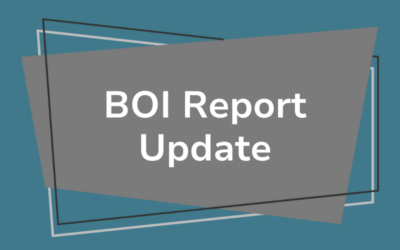Whether you sell products or services in one state or many states, it’s imperative to understand your business’s sales tax compliance requirements. To correctly register a business in a state and then file the proper sales tax, you need to know the difference between sales tax and sellers use tax and how nexus affects your obligations.
Sales Tax
Sales tax is a transaction tax paid by a consumer for a product or service and is a percentage of the sales price. Although not all states charge a sales tax, it is the seller’s responsibility to know which states do, to collect the sales tax, and remit it to the state. One state, Arizona, employs a “transaction privilege tax,” which leaves it up to the seller whether they want to charge a consumer the tax.
Not all goods and services are taxable, and the sales that are taxable vary by state. For example, food sold for preparation in the home is mostly not taxable; however, food prepared in a restaurant is taxable. Likewise, states vary on what services are deemed taxable. For example, in general, California does not consider any service taxable, although there are a few exceptions when related to manufacturing and property sales.
Taxability depends on the type of product or service you are selling, your business’s location, and your customer’s location. Currently, 45 states (and the District of Columbia) impose sales taxes on most goods and some services. In addition, 37 states also permit local sales taxes to be collected, in addition to the state sales tax. Alaska, which has no state sales tax, allows sales taxes to be imposed at the local level only. Most states also permit a separate sales tax to be charged on tobacco, alcohol, and automobile fuel.
If your business deals in digital products, you may face inconsistency among state tax regulations, as some states consider digital works such as software, audiovisual programs, and live events taxable.
Learn More: What You Need to Know About Collecting Sales Tax and Does Your Business Need a Sales Tax License?
Sellers Use Tax
Sellers use tax is the term used for sales tax imposed on out-of-state vendors. In other words, it’s the same sales tax (a percentage of the sales price on goods and services); however, the seller’s home state is not the state where the sale was made. Sellers use tax may also be called a retailer’s use tax or a vendor’s use tax. If the purchase would have been taxed in the consumer’s home state, then the same tax amount is due, and it is the seller’s responsibility to collect the tax and remit it to the state.
The out-of-state seller must register with the state’s tax board to obtain a sales license to sell in the state. In most cases, as long as the transaction is limited to only purchasing a service or goods, the seller’s responsibility is simply to collect and remit the sellers use tax. However, if the business has nexus in the state, additional compliance rules apply.
Learn More: A State-by-State Guide to Seller’s Permits
Nexus Basics
When a business has nexus in a state, it implies the company has a connection to the state in some way. This could be a physical presence, such as an office space, warehouse, or retail store in that state. Or the business may have employees living in the state. If a member of the business’s team regularly conducts in-person meetings with clients or customers in the state, the company also has nexus.
If the company is structured as a Limited Liability Company, C Corporation, or Limited Partnership and does business in the state, it has nexus. In this case, not only must the company obtain a sales permit in the state, a business deemed to have nexus is required to apply for a foreign qualification in the state, which means the company has permission to conduct business in the state. Also, the out-of-state company must hire a registered agent to act on behalf of the business in the state.
If a business is making a sale in the state and does not have nexus, it needs to obtain a seller’s permit and collect and remit the sales tax. It’s essential to know nearly every state has enacted nexus laws that affect remote sellers, including online marketplaces, so do your research or get help from an expert.
Learn More: When Do You Have Nexus in a State? and A State-by-State Guide to Economic Nexus
CorpNet Can Help!
CorpNet is here to help you register for sales and sellers use tax and to help your business foreign qualify if needed. We can explain what your state or local government requires and file all the paperwork for you.





